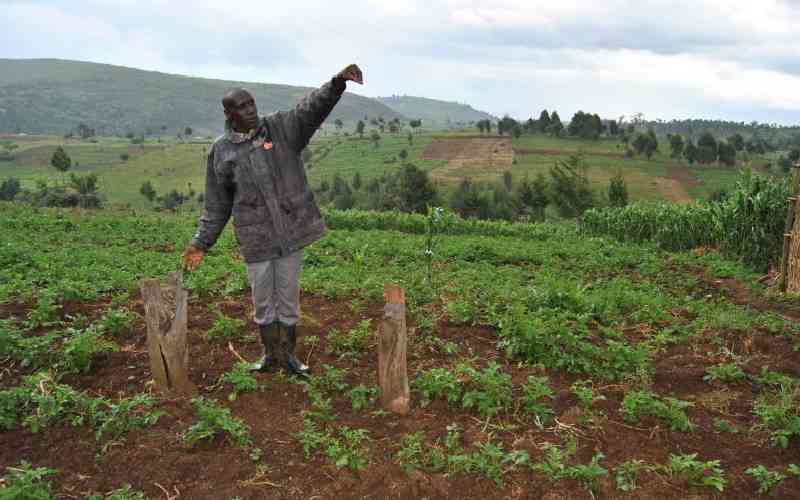×
The Standard e-Paper
Fearless, Trusted News

The caveat on parcels of land excised from the Mau Forest Complex in 2015 is hurting peasants in the South Rift region. According to a section of leaders from the region, lifting the caveat on land in the fringes of the expansive forest will spur development and growth.
On Sunday, during a church service at St Mary's Catholic Church in Molo, attended by President William Ruto, the leaders renewed their bid to push for lifting the ban.